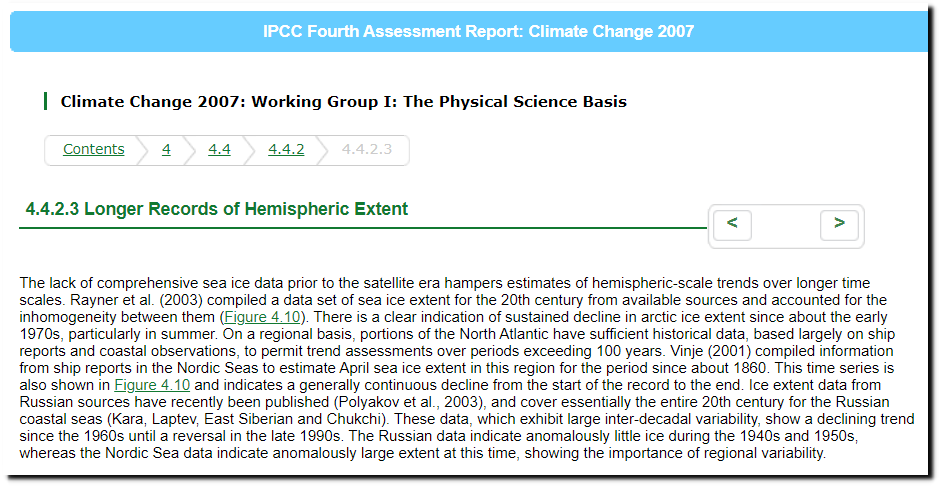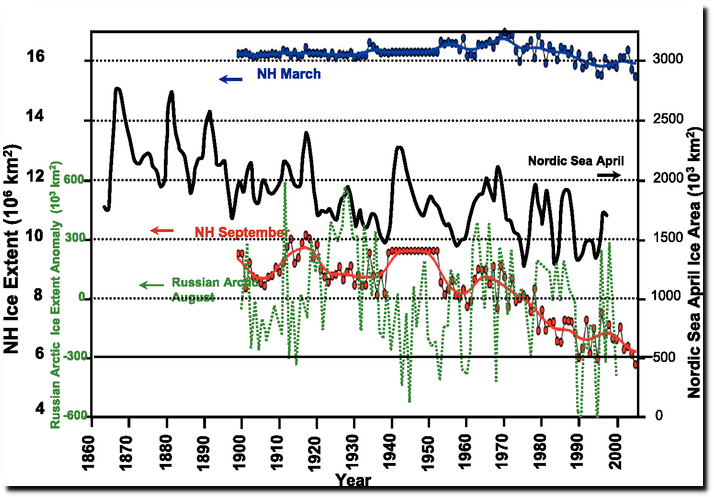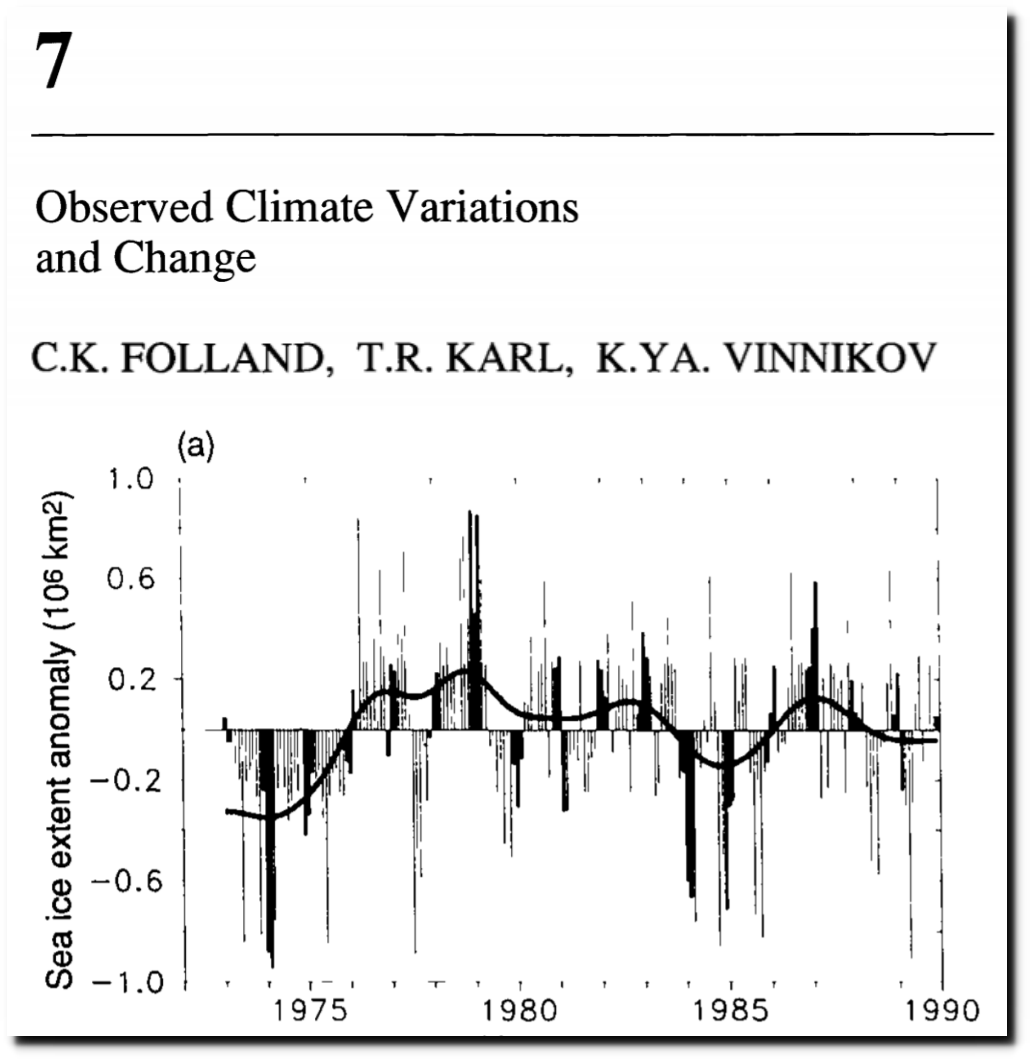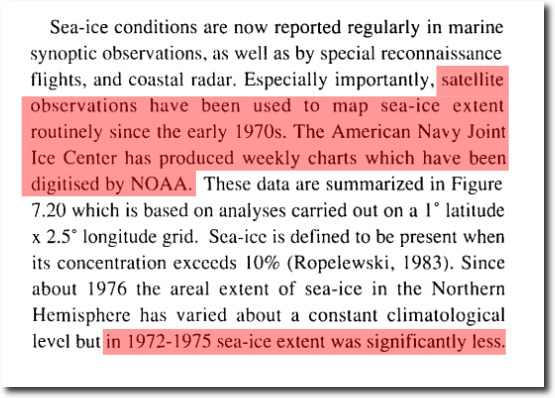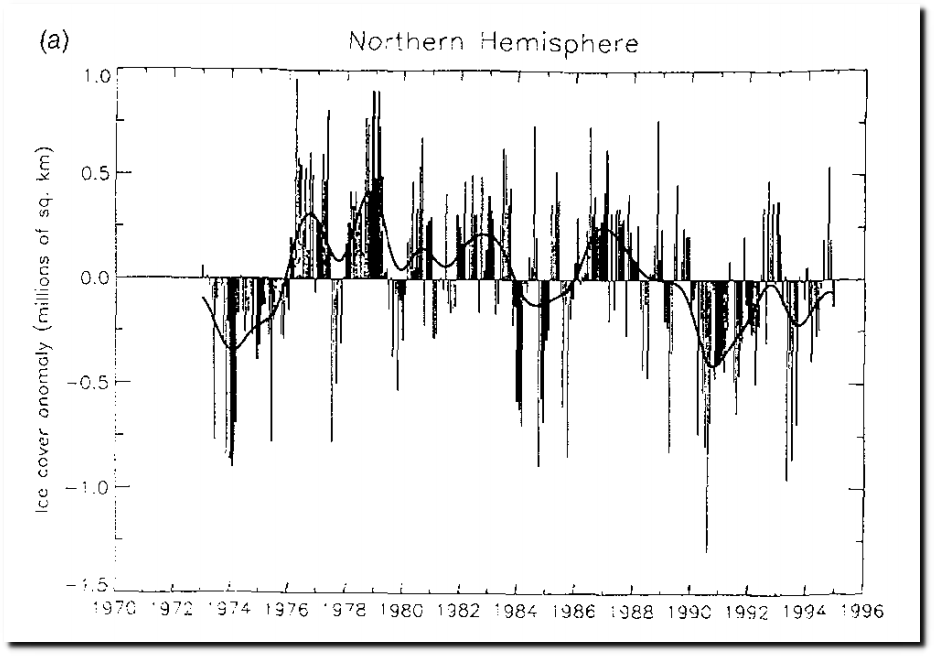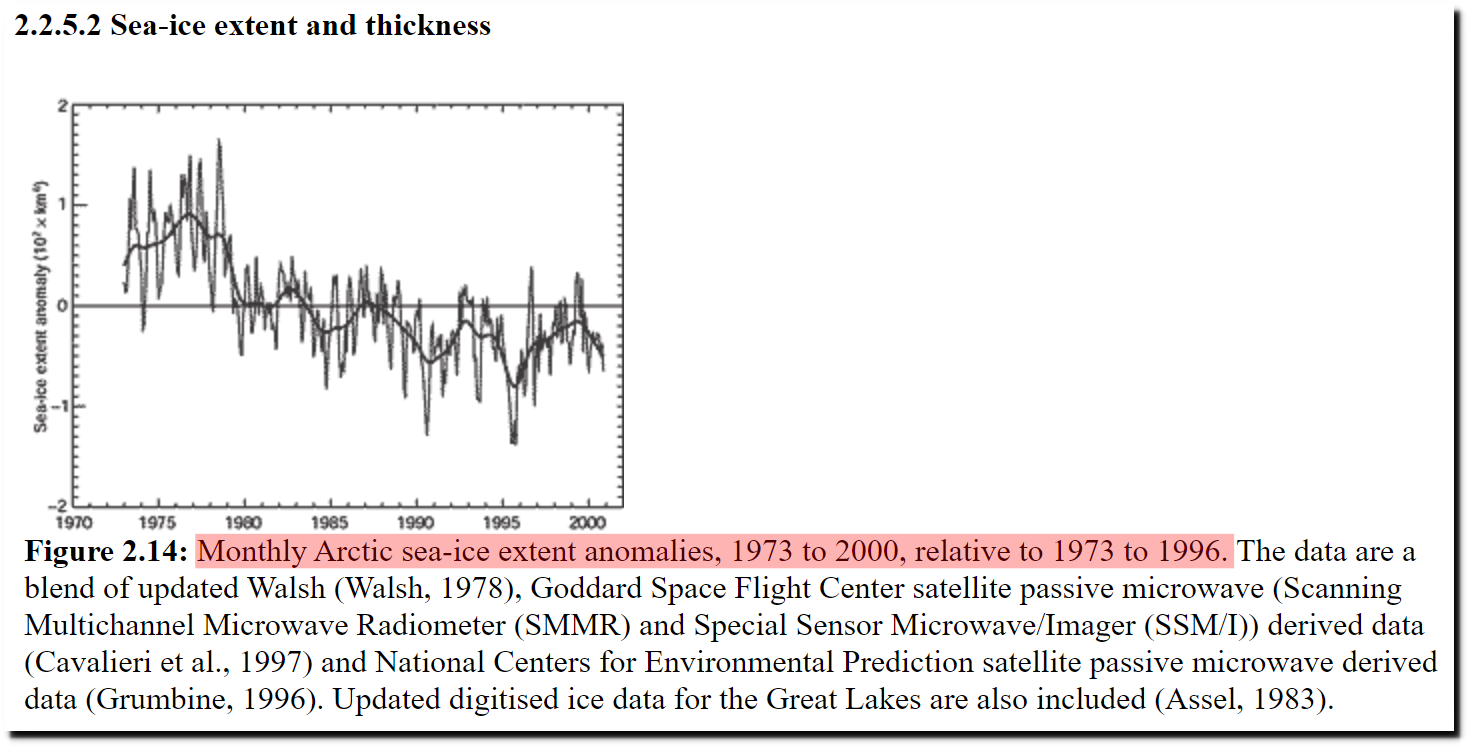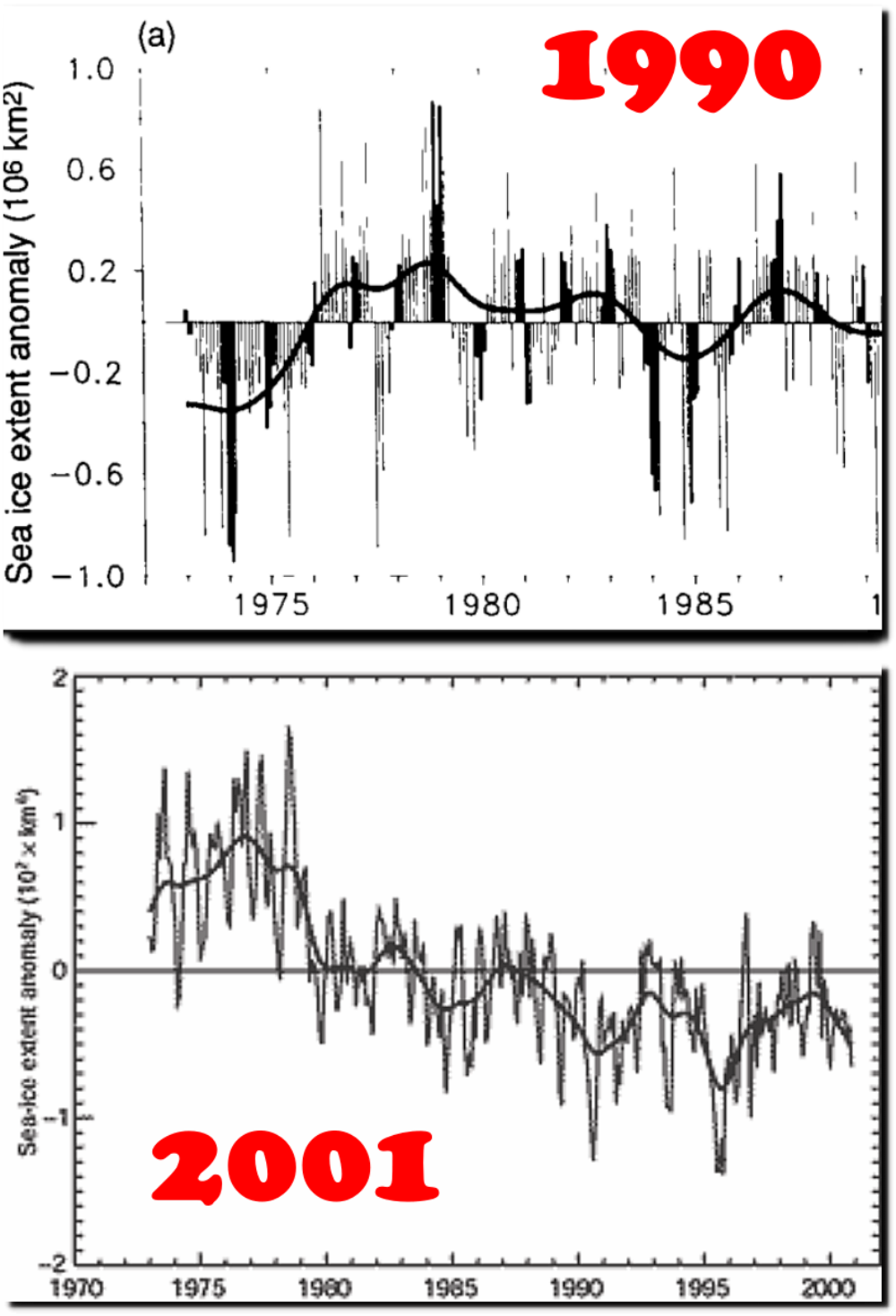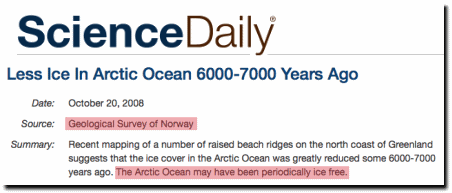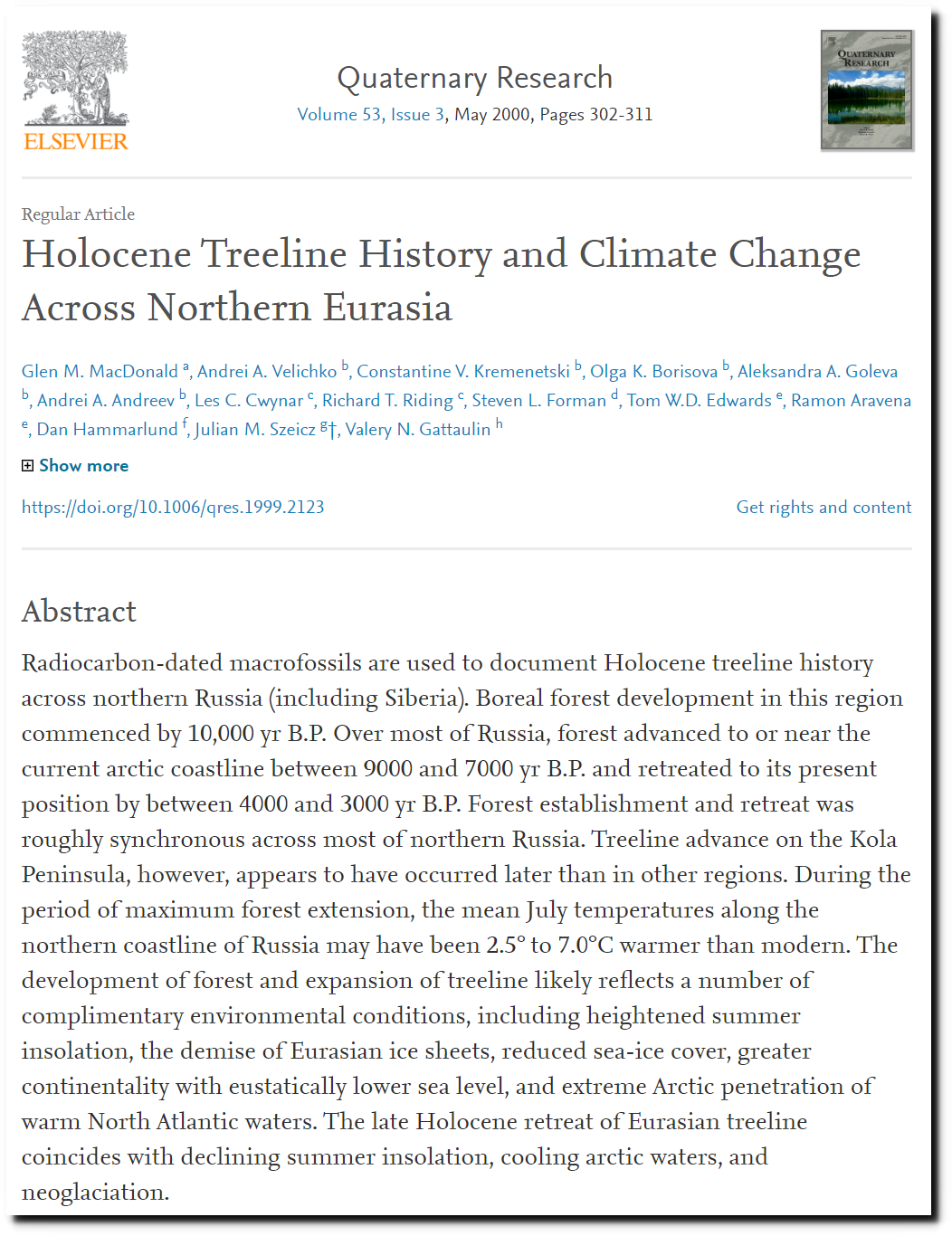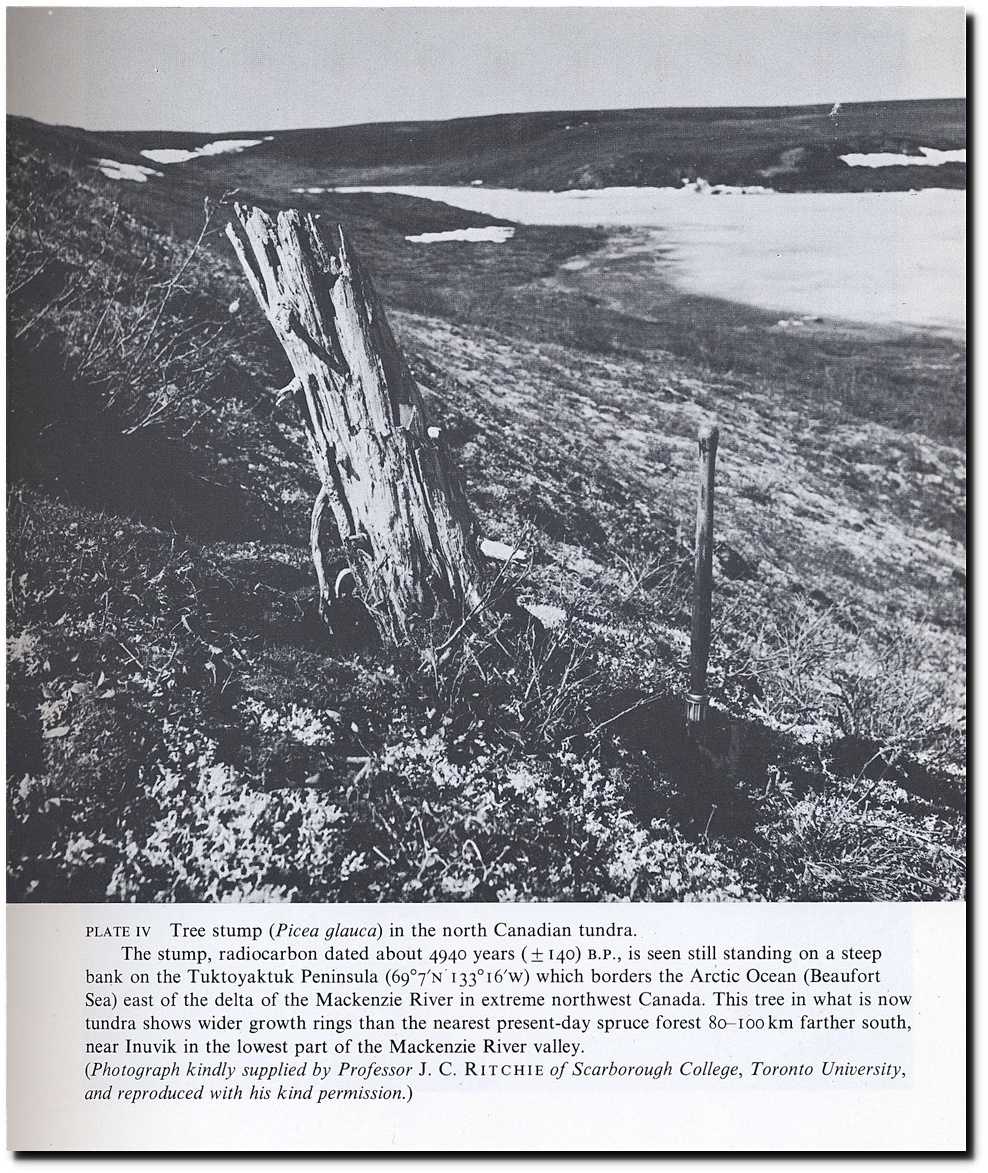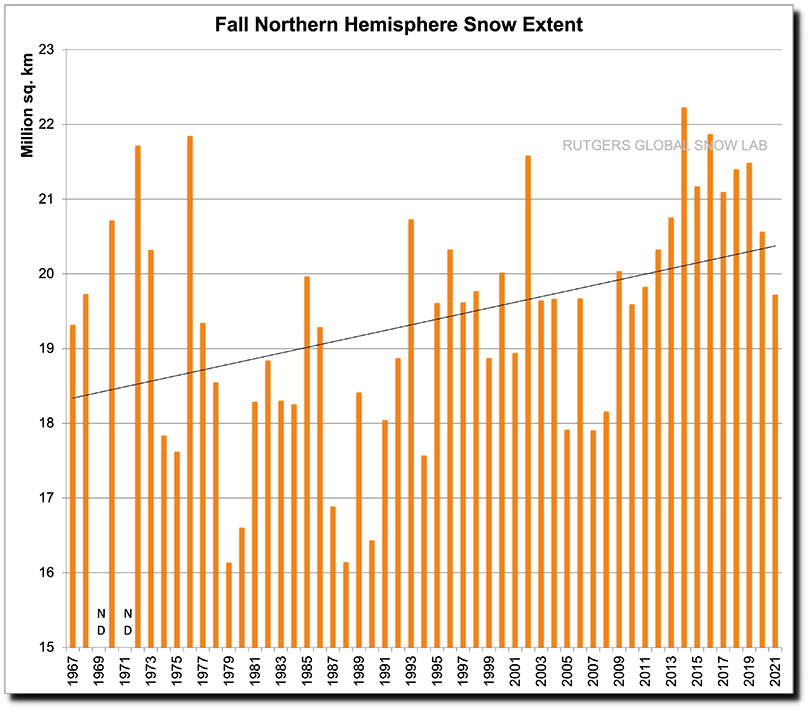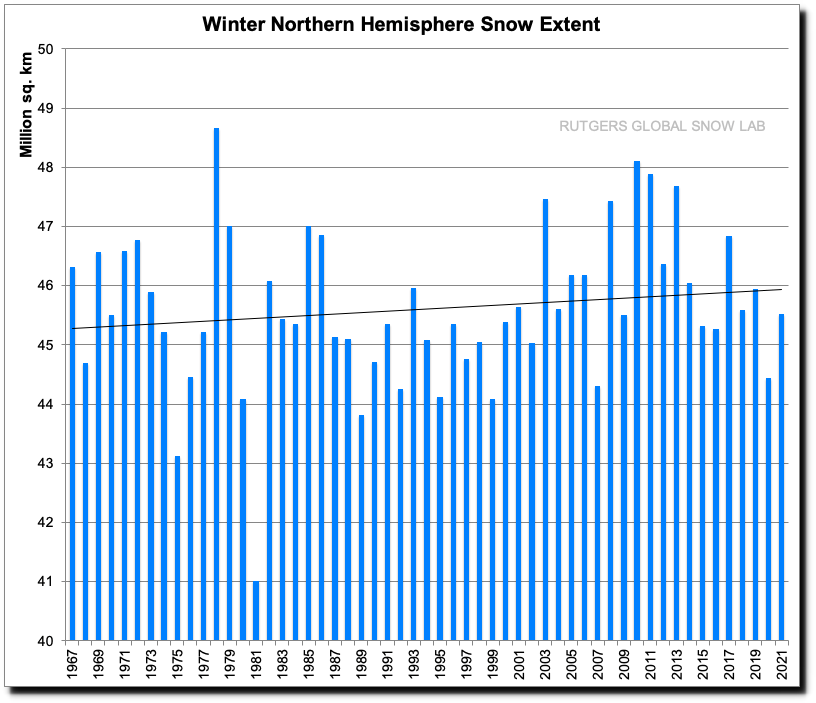“The lack of comprehensive sea ice data prior to the satellite era hampers estimates of hemispheric-scale trends over longer time scales. Rayner et al. (2003) compiled a data set of sea ice extent for the 20th century from available sources and accounted for the inhomogeneity between them (Figure 4.10). There is a clear indication of sustained decline in arctic ice extent since about the early 1970s, particularly in summer ….. Continuous long-term data records for the Antarctic are lacking, as systematic information on the entire Southern Ocean ice cover became available only with the advent of routine microwave satellite reconnaissance in the early 1970s.”
- IPCC 2007
Between 1990 and 2001, the IPCC rewrote the Arctic sea ice satellite record, and changed a trend of ice increasing to ice decreasing.
“The American Navy Joint Ice Center has produced weekly charts which have been digitised by NOAA ….. Since about 1976 the areal extent of sea-ice in the Northern Hemisphere has varied about a constant climatological level but in 1972-1975 sea-ice extent was significantly less.
1995 IPCC Report
2001 IPCC Report
https://archive.ipcc.ch/ipccreports/tar/wg1/062.htm
In the 1985 DOE Report ice increased from the 1950s to the 1970s.
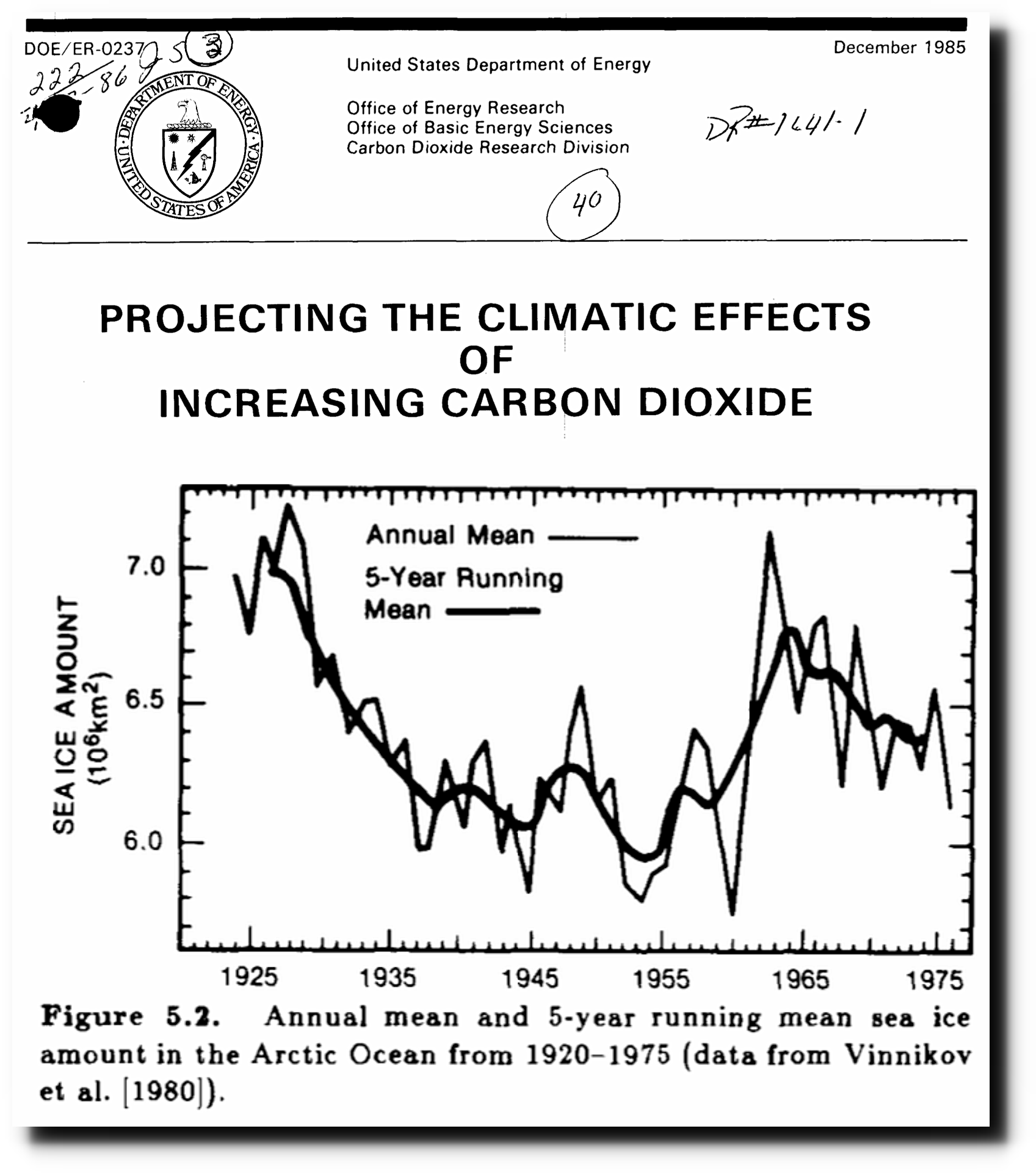 Projecting the climatic effects of increasing carbon dioxide
Projecting the climatic effects of increasing carbon dioxide
When Stonehenge was built, there was less ice in the Arctic and trees grew all the way to the edge of the Arctic Ocean.
Less Ice In Arctic Ocean 6000-7000 Years Ago — ScienceDaily
Holocene Treeline History and Climate Change Across Northern Eurasia – ScienceDirect
The current IPCC report says snow cover is declining due to human influence.
“Over recent decades, widespread loss of snow and ice has been observed, and several elements of the cryosphere are now in states unseen in centuries (high confidence). Human influence was very likely the main driver of observed reductions in Arctic sea ice since the late 1970s”

